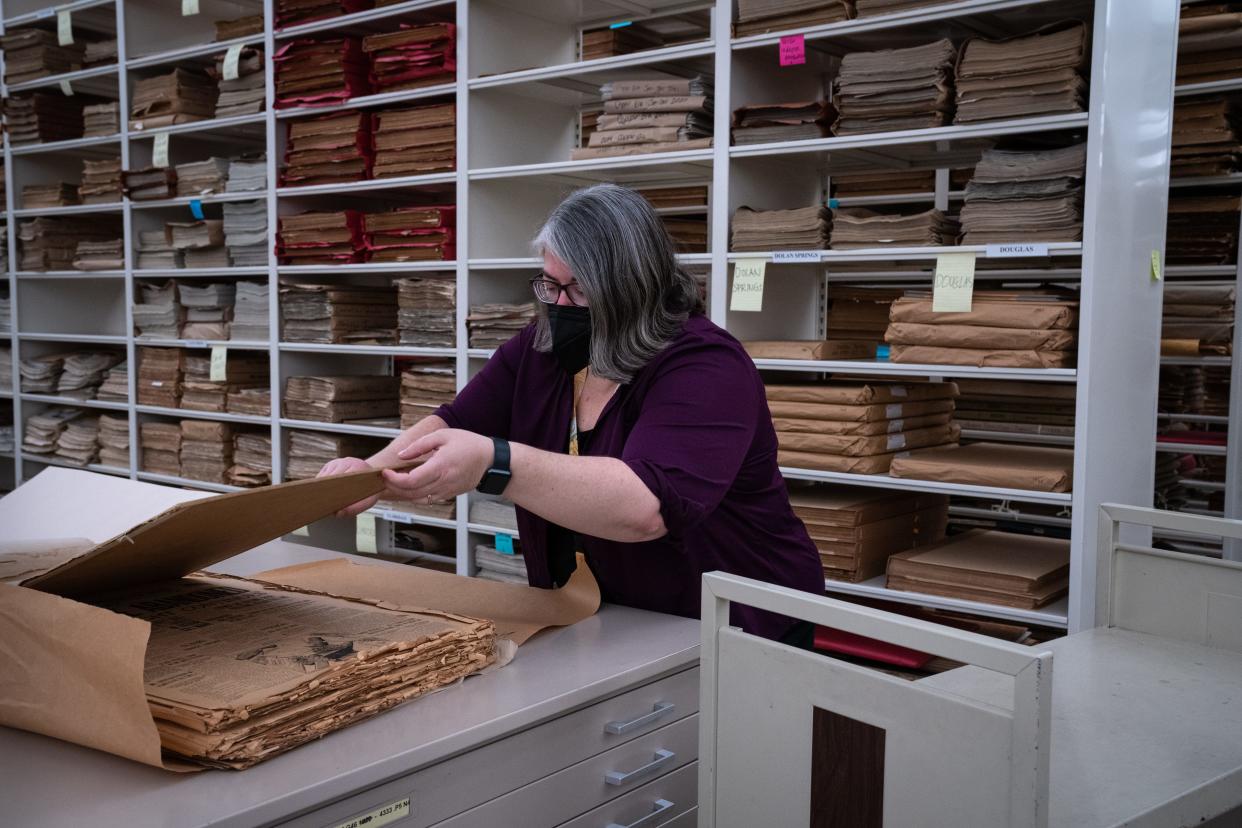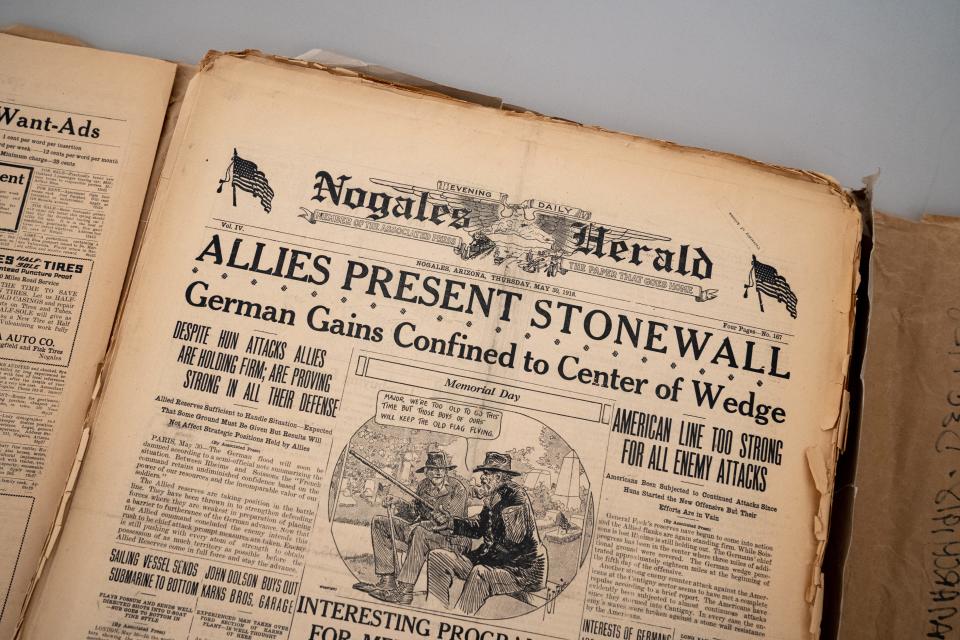'A fuller picture of our history': Spanish, cross-border Arizona newspapers to be online

A greater breadth of Arizona’s history soon will be immortalized for years to come.
About 100,000 pages of Arizona newspapers from historically underrepresented communities will be digitized, providing a more complete perspective of paramount events that shaped 20th century history, from the Great Depression to World War II.
Spanish-language newspapers from the state’s border communities and newspapers published by and for Tucson’s Black community from the 1890s to the 1960s will be memorialized and accessible to residents across the state. Newspapers from the state’s mining and agricultural communities, including Bisbee’s Brewery Gulch Gazette, will also be included in the project.

The digitization of the papers will give people a view of what everyday life was like in these communities, said Mary Feeney, news research librarian with the University of Arizona Libraries and one of the main people undertaking this project.
From birth and marriage announcements to major events influencing the community, the papers showcased life in communities that often have been overlooked through the years.
$100M painting: They returned a $100M painting and wanted no reward. How a museum is honoring them anyway
“It just gives us a fuller picture of our history,” Feeney said. “You wouldn’t have the whole story if you didn’t have those voices.”
The Arizona State Library, Archives and Public Records and the University of Arizona Libraries will spearhead the project after a $290,988 National Digital Newspaper Program two-year grant from the National Endowment for the Humanities.
The process began in September and will take about a year to complete, Feeney said.
One of the papers that will be further digitized as part of the program is Tucson’s El Fronterizo, a Spanish-language newspaper that was one of the most successful papers in the state’s Mexican community. Established in 1878, El Fronterizo ran for 36 years, reporting on issues and affairs from both sides of the Arizona-Mexico border.
“Things were different along the border 100 years ago,” Feeney said. “Things were a lot more fluid.”
The paper’s publication stopped for 14 years before a new owner and publisher took over and resumed operations in 1922.
“Historical newspapers are a valuable tool for researchers to learn about the cultural, economic, and political concerns of Arizona communities,” State Librarian Holly Henley said in a news release. “We are grateful to partner with University of Arizona Libraries once again to make these resources accessible to all who share our interest in Arizona history.”
Damaging ads: Political ads continue to hurt migrants, Latinos ahead of Arizona elections, advocates say
Other papers that will be digitized as part of the project are the Ajo Copper News and the Nogales Daily Herald.
The newspapers will be added to the 500,000 pages that already have been digitized and are accessible through Chronicling America, a website hosted by the Library of Congress, as well as the Arizona Memory Project, a website that provides access to primary sources in state archives, museums and libraries.
“We can’t really know our story in Arizona if we don’t know the whole story,” Feeney said.
Have a news tip or story idea about the border and its communities? Contact the reporter at jcastaneda1@arizonarepublic.com or connect with him on Twitter @joseicastaneda.
This article originally appeared on Arizona Republic: Arizona newspapers for Black, Spanish-speaking communities digitized

